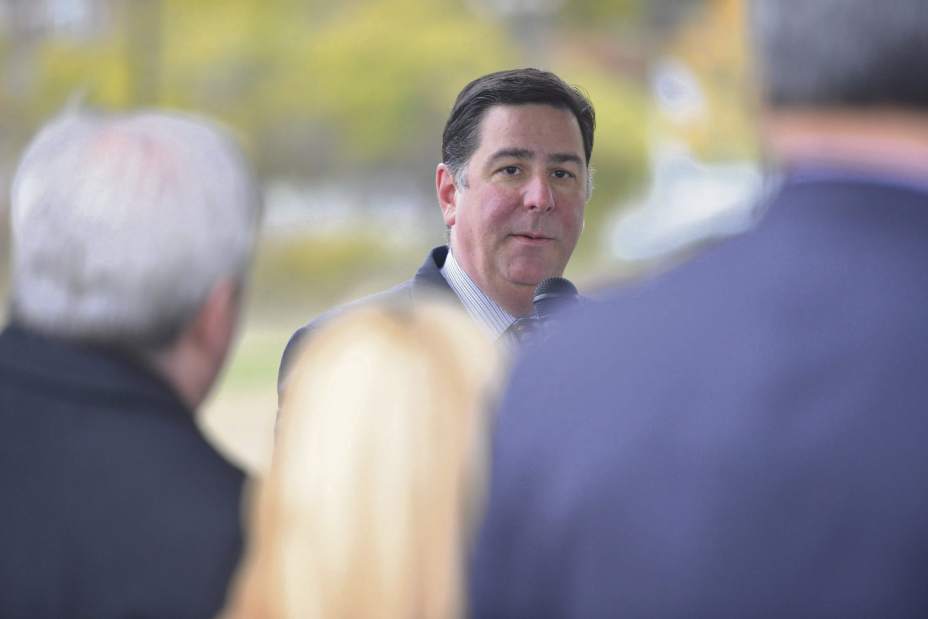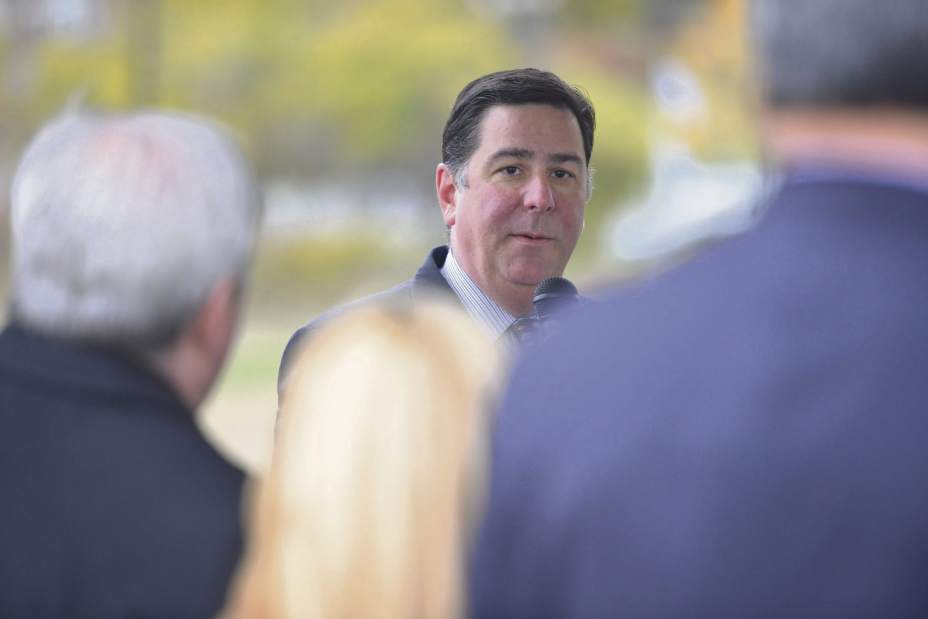Pittsburgh Mayor Peduto prioritizes taking in Syrian refugees
Pittsburgh Mayor Bill Peduto is committed to providing safe harbor for Syrian migrants, despite security concerns raised by top government officials.
Peduto recently joined 17 mayors from across the county urging President Obama to accept more than his proposed number of 10,000 Syrians this fiscal year. The mayors said they would work to find space for refugees in their cities.
“These people are living in hell,” Peduto said. “For people to characterize them as terrorists while they're trying to escape the terrorists ... is not only unfortunate, but inhumane.”
U.S. intelligence officials have raised concern that Europe's disorganized response to millions of migrants fleeing war-torn Syria could let terrorists slip through.
“There is risk associated with bringing anybody in from the outside, but especially from a conflict zone like that,” FBI Director James Comey said during a recent Senate committee hearing.
House Judiciary Committee Chairman Bob Goodlatte, R-Va., cited Comey's concern last week in urging Obama to rescind his call for 10,000 Syrian refugees.
Rep. Tim Murphy, R-Upper St. Clair, commended Peduto for welcoming refugees but said the city must carefully weigh security factors and potential costs to the region.
“In a very dangerous world, where ISIS and other terrorist organizations are trying to get into our country, it is a concern that citizens have about why are we doing this,” Murphy said.
Polling indicates Americans are split on the issue. Thirty-five percent of respondents to a recent Reuters/IPSOS poll said 10,000 refugees is too many; 23 percent said the number is just right; and 20 percent said the United States should welcome more.
Peduto said refugees must pass stringent federal government screening.
“A lot of these people who are coming over are highly educated, with college degrees,” he said. “These are the people who have been cast out by both the (Syrian President Bashar al-Assad) regime and by the terrorist organizations.”
Refugees are subject to the highest level of security checks and health screenings, but most details are classified, according to the State Department.
Specially trained Department of Homeland Security officers interview potential refugees and their families in countries where the refugees are living. They fingerprint refugees and run prints through law enforcement databases, according to Leon Rodriguez, director of the department's Citizenship and Immigration Services.
“The refugee officers in our agency are among the most highest trained professionals in the federal government, and they are specifically trained in country conditions to conduct interviews to screen out individuals who may do us harm,” Rodriguez said during a House Foreign Affairs subcommittee hearing last week.
Peduto said he has asked four resettlement agencies — Northern Area Multi-Service Center in Sharpsburg, Jewish Family and Children's Services in Squirrel Hill, Downtown-based Catholic Charities of Pittsburgh, and AJAPO Refugee Immigration Services in the Hill District — to determine whether Pittsburgh has space for 500 Syrians.
The exact number, he said, would be up to the agencies. They would have to help refugees find housing and jobs.
Agency representatives said it takes, on average, 18 to 24 months for processing before a refugee arrives in the United States.
“Whether or not those organizations have the ability to do that much more, we don't know at this point,” Peduto said. “I would like to think that we could.”
Pittsburgh in recent years has averaged about 500 new refugees annually, including Bhutanese, Iraqis, Congolese and Somalians, said Kheir Mugwaneza, director of the Northern Area Multi-Service Center's refugee program.
Mugwaneza said resettlement groups don't know whether it's possible to accommodate 500 Syrians.
“We have to work within the limits and resources that are available in Pittsburgh,” he said.
The government pays about $1,100 per refugee to house, feed and provide basics for the first three months, Mugwaneza said. After that, they must be employed and start paying bills on their own, he said.
It's tough to find entry-level jobs for refugees and even harder to find housing. Few landlords are willing to accept families who have no immediate income, said Leslie Aizenman, director of refugee and immigrant services at Jewish Family and Children's Services.
She said refugees help rebuild downtrodden city neighborhoods and attract young residents looking for residential diversity, Aizenman said.
Peduto said Pittsburgh has an obligation to help.
“The thing that we need to do is concentrate on the human life that can be saved,” said Peduto, the grandson of Italian immigrants. “Anybody who is the child or grandchild of an immigrant, we owe it to pay it forward for the opportunity that was given to us.”
Bob Bauder is a Trib Total Media staff writer.


